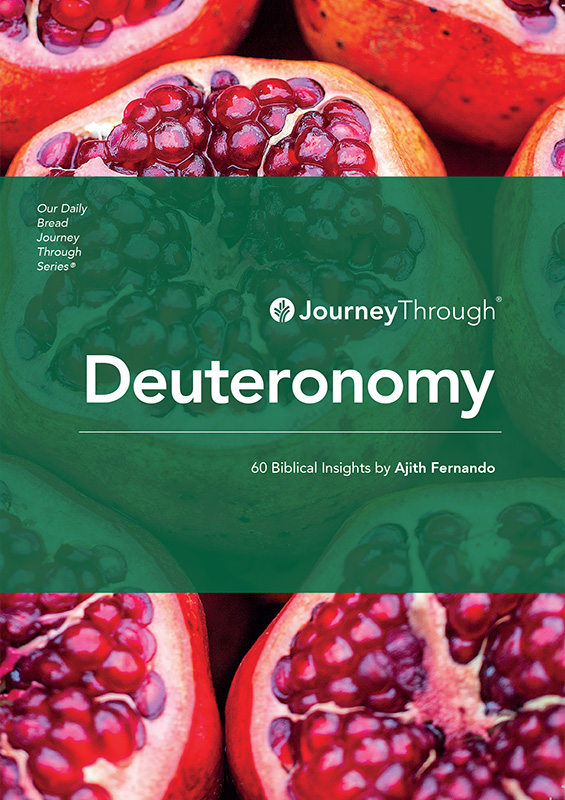Deuteronomy
by Ajith Fernando
Deuteronomy records the sermons Moses gave to the nation of Israel shortly before he died. Having led them for 40 years, Moses was closely acquainted with their strengths and weaknesses. The sermons he offered them about walking in faithfulness to God were therefore very relevant to their struggles. In his sermons, he warns them about compromise and prepares them to face the challenges that would threaten their faithfulness to God once they reached the new land. As all Christians face similar challenges, it is not surprising that Deuteronomy is quoted over 80 times in the New Testament.
The name Deuteronomy is from a Greek term meaning “second law”. It comes from the translation of “a copy of this law” (Deuteronomy 17:18).
Deuteronomy reminds the Israelites that God loves His people and has acted to deliver and provide for them. But it also warns that God would punish them when they were disobedient. For a life of faithfulness, the Israelites would need to know how to respond to God in love and obedience.
Deuteronomy is loaded with laws given to the nation of Israel, the heart of which are the Ten Commandments (5:1–21). They expand into detailed instructions for all aspects of life. We should not dismiss these laws as irrelevant because we now live under grace. All the laws reveal God’s nature and wisdom. We can glean principles for our behaviour from them, even from those that applied only to the nation of Israel before the new covenant (see Day 12).
The Structure of Deuteronomy
When he takes the throne of his kingdom, he is to write for himself on a scroll a copy of this law, taken from that of the Levitical priests.-Deuteronomy 17:18





